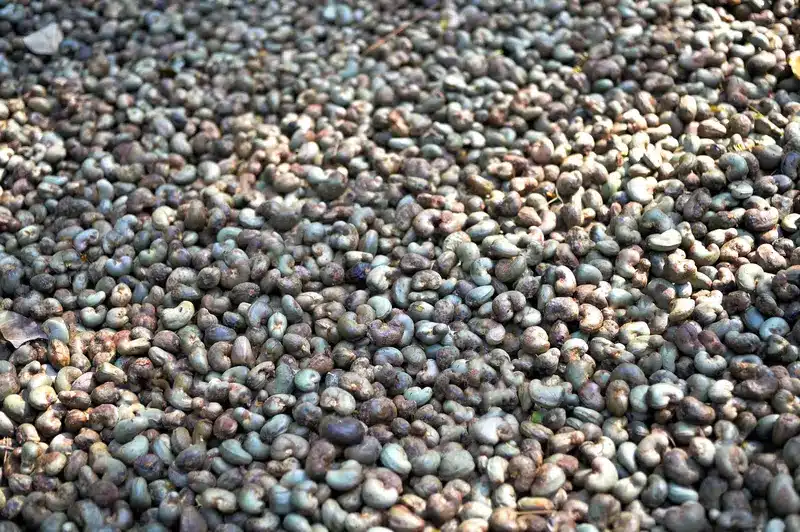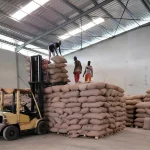The global trade of raw cashew nuts is a significant sector within the broader agricultural economy. This industry is predominantly driven by some of the world’s leading cashew nut producers, such as Vietnam, India, and Côte d’Ivoire, whose contributions shape the market dynamics and influence global trade patterns. In the midst of this thriving industry, it is absolutely essential to comprehend the myriad payment options available for the procurement of raw cashew nuts. Various factors, including financial regulations, transaction volumes, and risk tolerance levels, can dictate the choice of payment method. Understanding these factors can greatly assist in making sound and strategic decisions in the cashew nut trade.
Cash Payments
Cash transactions, although traditional, remain prevalent in certain regions where cashew cultivation is abundant. Direct cash payments offer simplicity and immediacy, especially in local markets or small-scale transactions. However, they entail inherent risks such as security concerns, lack of documentation, and limited traceability, making them less favorable for larger or international trade.
Bank Transfers
Bank transfers emerge as a cornerstone of secure and transparent financial transactions in the global cashew nut trade. Leveraging the infrastructure of financial institutions, buyers can seamlessly transfer funds from their accounts to the seller’s, ensuring a reliable payment mechanism. While bank transfers offer enhanced security and traceability, they may incur transaction fees and encounter delays, particularly in cross-border transactions subject to international banking regulations.
Using Bank Transfers to Procure Raw Cashew Nuts: A Quick Guide
Agreement and Verification:
Agree on terms with the seller, including price and delivery details.
Verify banking information, including SWIFT/BIC codes and account numbers.
Fund Availability:
Ensure funds are available in your account to cover the transfer amount and fees.
Initiation:
Initiate the transfer through your bank’s online portal or app.
Input recipient’s banking details and transfer amount in the desired currency.
Authorization:
Authorize the transfer using your bank’s security measures.
Tracking:
Monitor the transfer’s progress through your bank’s platform or customer service.
Confirmation:
Confirm successful completion of the transfer with your bank.
Documentation:
Keep records of transfer receipts and confirmations for documentation.
Follow-Up:
Follow up on any discrepancies or delays with your bank and the recipient.
Letters of Credit (LC)
Letters of Credit serve as a pivotal instrument in mitigating financial risks for both buyers and sellers engaged in international cashew nut trade. Through an LC arrangement, the buyer’s bank guarantees payment to the seller upon the presentation of specified documents, safeguarding against non-payment or default. Despite offering a robust framework for secure transactions, LCs entail complexities, including bank charges, insurance premiums, and adherence to stringent documentation requirements.
A Concise Guide to Using Letters of Credit (LC) in Cashew Nut Trade
Initiation:
Buyer applies for an LC from their bank.
Issuing bank assesses and issues the LC in favor of the seller.
Terms and Conditions:
LC outlines agreed-upon terms, including quantity, shipment details, and required documents.
Document Submission:
Seller ships cashew nuts and submits required shipping documents to their bank.
Document Examination:
Advising bank reviews documents for compliance with LC terms.
Payment Authorization:
Issuing bank verifies documents and authorizes payment to the seller.
Payment and Disbursement:
Issuing bank makes payment to the seller or reimburses the advising bank.
Completion:
Buyer receives documents and goods, seller receives payment.
*Key Considerations:
- Ensure document compliance to avoid delays
- Adhere to shipment schedule to prevent LC expiration.
- Maintain open communication between parties and banks.
- Be aware of associated bank charges.
Documentary CollectionsDocumentary collections, commonly known as cash against documents (CAD), offer an intermediary solution balancing security and flexibility in payment transactions. Under this method, the seller ships the goods and presents shipping documents to their bank, which forwards them to the buyer’s bank along with payment instructions. Upon acceptance of the documents and payment by the buyer, the bank releases the documents, facilitating the completion of the transaction. However, documentary collections entail risks such as non-payment or disputes arising from document discrepancies, necessitating careful scrutiny and adherence to contractual obligations.
Open Account
Open account terms represent a straightforward yet potentially risky payment arrangement in the cashew nut trade. In an open account transaction, the seller ships the goods and invoices the buyer, who agrees to make payment within an agreed-upon credit period. While open account terms foster business relationships and streamline transactions by eliminating the need for upfront payment, they expose sellers to the risk of non-payment or delayed payment, especially in instances of buyer default or financial instability. Considerations for Choosing Payment Methods
When procuring raw cashew nuts, it’s important to select a secure payment method. This should ideally offer strong protection against fraud and disputes. Reliable methods that ensure timely transactions are key for smooth trading operations. It’s also crucial to consider the financial implications. Evaluate the costs of different payment methods, including transaction fees, to maximize efficiency and optimize your financial resources.
In the rapidly changing field of international trade, it’s crucial to understand the detailed requirements for documentation. This is particularly true for cross-border transactions, where following the correct documentation procedures ensures compliance with regulations and reduces the chance of procedural issues. Flexibility is a key factor. Preferred payment methods are those that can handle different payment schedules and currency options, meeting the various needs of both buyers and sellers.
Moreover, building trust and nurturing positive relationships between trading partners is crucial. Payment methods that encourage transparency and cooperation not only enhance mutual trust, but also serve as the foundation for lasting business relationships. Furthermore, adhering to regulatory compliance is crucial to manage the intricate legal frameworks that govern global trade, reducing the risk of penalties or sanctions. By thoughtfully considering these aspects, buyers and sellers can confidently and effectively handle cashew nut transactions, facilitating smooth operations and promoting sustainable business growth.
In conclusion, the payment landscape for raw cashew nut procurement encompasses a spectrum of options characterized by varying degrees of security, convenience, and complexity. While traditional methods like cash payments persist in localized contexts, bank transfers, letters of credit, documentary collections, and open account terms dominate international trade, each offering distinct advantages and considerations. The selection of an appropriate payment method hinges on factors such as transaction volume, risk tolerance, and the level of trust between buyers and sellers. By navigating these payment channels adeptly, stakeholders in the cashew nut industry can facilitate smoother transactions, foster sustainable business relationships, and navigate the complexities of global trade with confidence and resilience.



